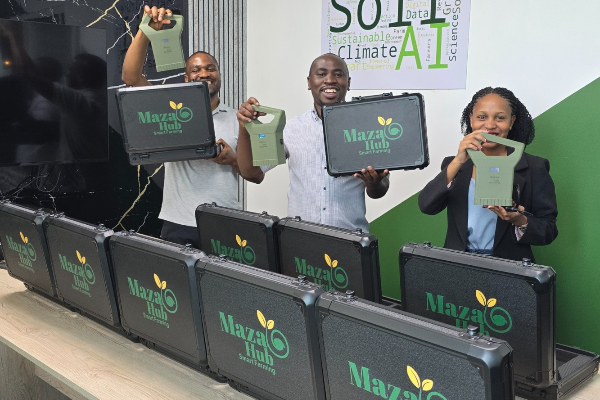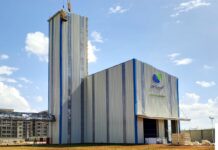MazaoHub, a Tanzanian agritech startup, has successfully closed a US$2 million oversubscribed seed funding round aimed at scaling its climate-smart, data-driven agronomy services across the country.
The capital injection will enable the startup to deepen its technological offerings, extend its field presence through more service centres, improve its soil testing capability, and offer more robust support to smallholder farmers.
According to the company, of the $2 million raise, $1.5 million came in the form of equity funding led by Catalyst Fund, with participation from Nordic Impact Fund, Mercy Corps Ventures, elea Foundation, Impacc, and DOB Equity. The remaining $500,000 is being provided as non-dilutive capital from the Livelihood Impact Fund.
MazaoHub’s model combines AI-powered soil intelligence with in-person farmer support via its network of “Farmer Excellence Centres” (also known as Kliniki za Kilimo), as well as low-cost soil sensors and portable soil test kits. These tools feed into its farm-management platform, which works even offline, to deliver data dashboards, cost-analysis tools, and agronomic guidance.
One of the stated aims of the funding is to scale up the production of these soil kits and sensors, expand MazaoHub’s footprint of Farmer Excellence Centres, and scale its sourcing and traceability platform CropSupply.com — which links soil data with buyers.
The startup argues that its recommendations can help reduce fertilizer use by up to 30%, while also encouraging the use of organic manure. These improvements are designed to raise yields, lower input costs, improve soil health, and help farmers be more resilient in the face of climate change.
Investor interest is being driven not just by social and environmental impact but by the potential for measurable resource efficiencies. For example, Catalyst Fund said MazaoHub is a good example of how local expertise combined with data can help scale sustainable farming. The Nordic Impact Fund similarly saw alignment with its goals around emissions reduction and climate resilience.
MazaoHub’s “Tech & Touch” model — combining digital tools and data with hands-on agronomy support — is seen as particularly well suited to contexts where connectivity, literacy, trust, and access to inputs are variable across regions. Operating offline-capable tools and having field-based agronomists are parts of overcoming those barriers.
Partnership with CRDB Bank Foundation
MazaoHub also has entered a partnership with the CRDB Bank Foundation, designed to deepen financial inclusion and support for smallholder farmers. Under the collaboration, farmers in MazaoHub’s network will no longer need to provide traditional physical collateral. Instead, real-time agronomy data collected through MazaoHub’s Farmer Excellence Centres across 15 regions will serve to validate productivity and creditworthiness.
Through this arrangement, smallholder farmers will gain access to loans, quality agricultural inputs, precision farming tools, and market opportunities. The partnership is backed by the FUNGUO Innovation Programme (led by UNDP Tanzania and funded by the European Union, the Republic of Finland, and the British High Commission) which supports youth-led innovations via mentorship, grants, and capacity building.
More than 500,000 farmers are expected to benefit over the term of the agreement. In addition to technology and financial support, the agreement includes entrepreneurship training, financial literacy, assistance with land preparation, crop management, post-harvest marketing, and access to essential inputs like fertilizers and pesticides.
Looking Ahead
With the $2 million raise and the CRDB Bank Foundation partnership, MazaoHub is positioning itself to make a significant impact in Tanzanian agriculture. The combined approach — data, advisory services, financial access, and market linkages — could help close many of the gaps that smallholders face: lack of reliable agronomic information; difficulty accessing inputs and finance; risk from climate and resource inefficiencies.
How effectively MazaoHub can scale operationally (keeping costs down, ensuring sensor/process durability, maintaining service quality at new centres) will be closely watched. If successful, this model has strong potential not only to improve yields and incomes for farmers but to serve as a blueprint for agriculture innovation elsewhere in Africa.








